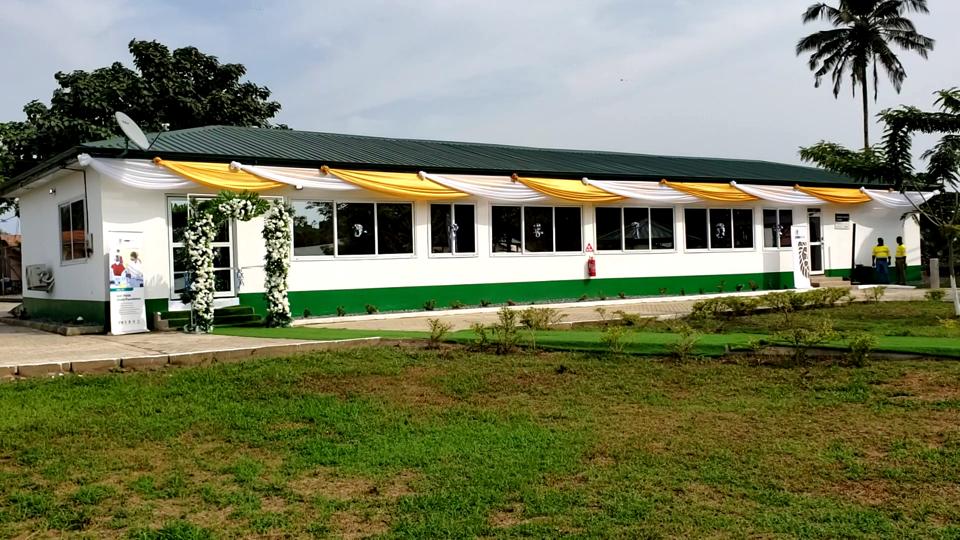
By Kizito CUDJOE
The Africa Centre for Energy Policy (ACEP) has urged government to exercise caution in its handling of the Gold Fields Damang Mine lease renewal, warning that any rushed decision could undermine investor confidence and expose the country to legal and reputational risks.
The energy policy think-tank emphasised that while Ghana is entitled to derive full value from its mineral resources, decisions surrounding the lease renewal must be made transparently and in the public interest.
“Any stakeholder truly aligned with this national goal must be transparent and factual in demonstrating how their decisions maximise public benefit,” Executive Director-ACEP, Benjamin Boakye, said at a press conference in Accra.
He noted that government’s handling of the matter should demonstrate diligence, legal compliance and a long-term commitment to safeguarding Ghana’s mineral wealth.
“A rushed and disputed decision not only risks international litigation and reputational damage but also undermines investor confidence and the rule of law,” the statement added.
The Damang Mine, operated by Gold Fields, is one of Ghana’s key gold-producing assets. The lease renewal has become a subject of public interest after the company announced that government had rejected its proposal to renew the lease.
ACEP at the meeting with press indicated in its statement that: “Already, the news portals have captured state officials and also surmised from the minister’s statement that this is all an effort to nationalise the mine”.
Owing to this, it said that if the policy direction of government is to revisit the 1970s resource nationalisation efforts – which collapsed the mining industry, there is a need for clarity.
It said government ought to indicate “what will be different this time to leave no doubts in the minds of investors, especially when the required actions per the law are clear, but actions of implementers differ”.
ACEP, in its analysis of the ongoing lease renewal saga, noted that the state’s decision to take over the mine after April 18, 2025 is premature, particularly given that the basis for the lease rejection is itself contested.
Citing Section 27 of the Minerals and Mining Act 2006 (Act 703) as amended, ACEP said the law is unambiguous on this matter.
“We understand that the company has formally notified government of its intention to seek redress through arbitration, as is their right; and it’s the state’s responsibility to respect the same under the mining lease.”
That notice satisfies the condition under Section 27(5) and, accordingly, the mine’s operations should remain undisturbed until the dispute is resolved, ACEP demanded.
On the reasons cited for rejecting the lease application, ACEP said the public deserves a more rigorous and objective explanation – adding that the suspension of active mining must comply with Regulation 22 of the Minerals and Mining (General) Regulations, 2012 (LI 2173).
Furthermore, ACEP disagreed with the minister’s statement that the company had stopped active mining and was merely processing stockpiles.
“Stockpiles are materials already mined and stored for future processing. Depending on the grade of the stockpile, the project’s economics may define when a particular grade is processed. The production of 135,000 ounces of gold from these stockpiles in 2024 underscores the value and relevance of the stockpile to the mine’s output.”
According to ACEP, the company indicates that it obtained approval from the Commission to process the stockpiles.
“The minister ought to verify this claim with the Commission in alignment with provisions of the law before drawing conclusions.”
Among others, ACEP called for halting efforts to expropriate the mine, stating that: “Government needs to exercise restraint, renew dialogue and pursue a legally guided resolution that protects the interests of both the state and investors”.
Abosso Goldfields Limited (AGL) is a Ghanaian company that operates the Damang Gold Mine, with Gold Fields Ghana Holdings Limited owning 71.1 percent interest in AGL, IAMGold 18.9 percent and the Ghanaian government 10 percent.
The mine controls five Prospecting Licences and two Mining Leases, covering 8,111 hectares (ha). Damang processes 5.1 metric tonnes (Mt) per annum, blending 37 percent oxide ore and 63 percent fresh ore.
For the year ending June 30, 2009, the process feed totalled 5.0 Mt at a yield of 1.3 grammes per tonne (g/t Au), producing 200,000 ounces (koz) of gold.
The concession spans 27,174 hectares (ha).
The post ACEP urges caution over Gold Fields Damang lease renewal appeared first on The Business & Financial Times.
Read Full Story






















Facebook
Twitter
Pinterest
Instagram
Google+
YouTube
LinkedIn
RSS